An Introduction to Visual Paradigm
An Introduction to Visual Paradigm
There are many UML modeling tools on the market. In this article, I’d like to introduce the one I used in my daily work called Visual Paradigm.
I have used many UML and modeling tools in my career, some are open-sourced and some are commercial softwares. There are many options in this field you can choose from, such as ArgoUML1, StarUML2, OmniGraffle3, or etc. You can check the links of these tools I’ve provided to you to see if they can fit your requirements.
The tool I used in my daily work is called Visual Paradigm4, and it is abbreviated as VP. Here is a brief introduction of this tool5:
This software is a UML CASE Tool supporting UML 2, SysML and Business Process Modeling Notation (BPMN)
There are many features provided by VP, not limited to UML diagrams:
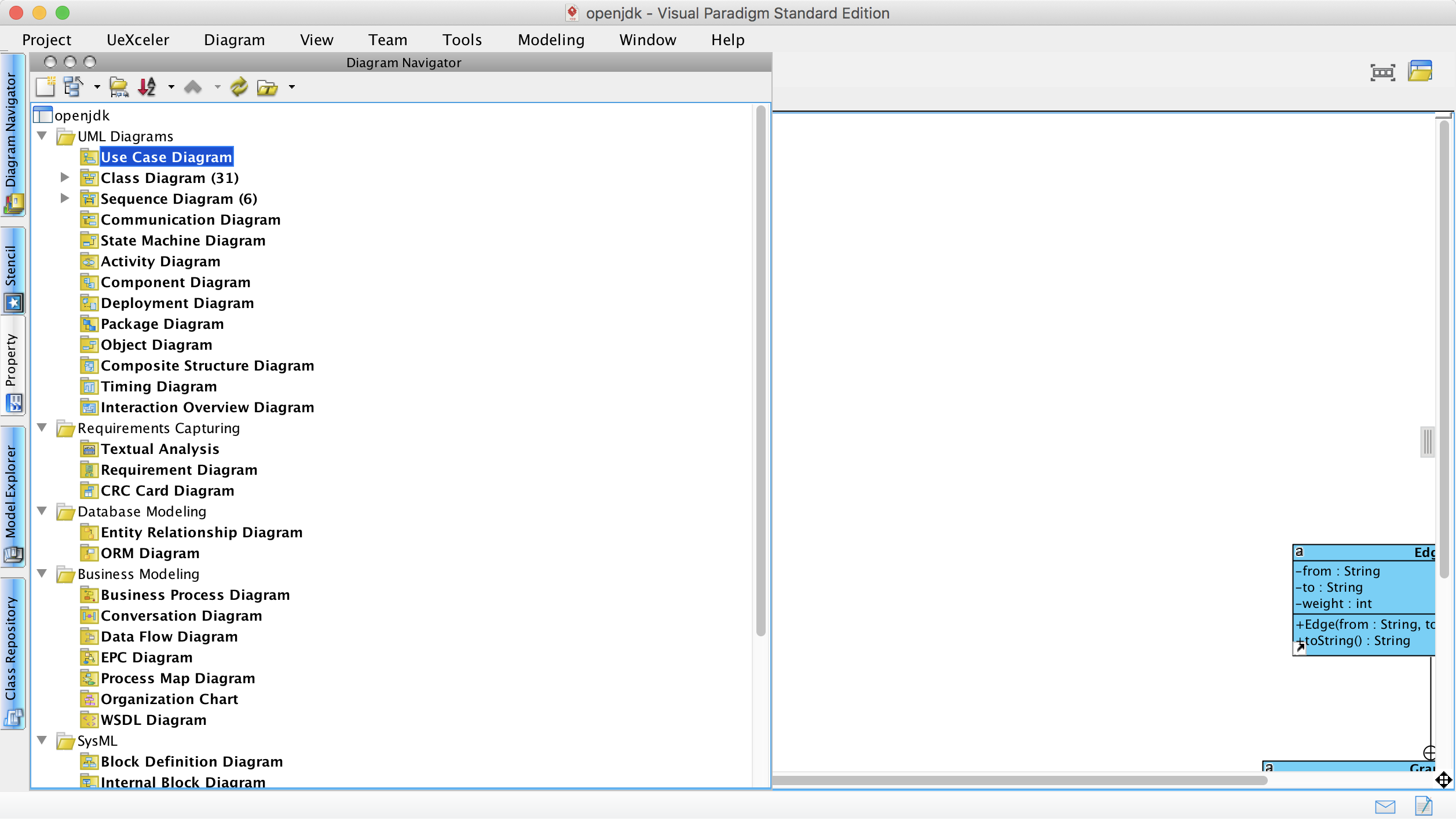
As the screenshot shown above, you can see there are a lot of features provided by the tool. I use this tool mainly for its reversing engineering capabilities to generate UML Class Diagram and Sequence Diagram from Java or C++ codes. As you can see in the following diagram, VP can generate UML 2 Class Diagram directly from Java Class File:
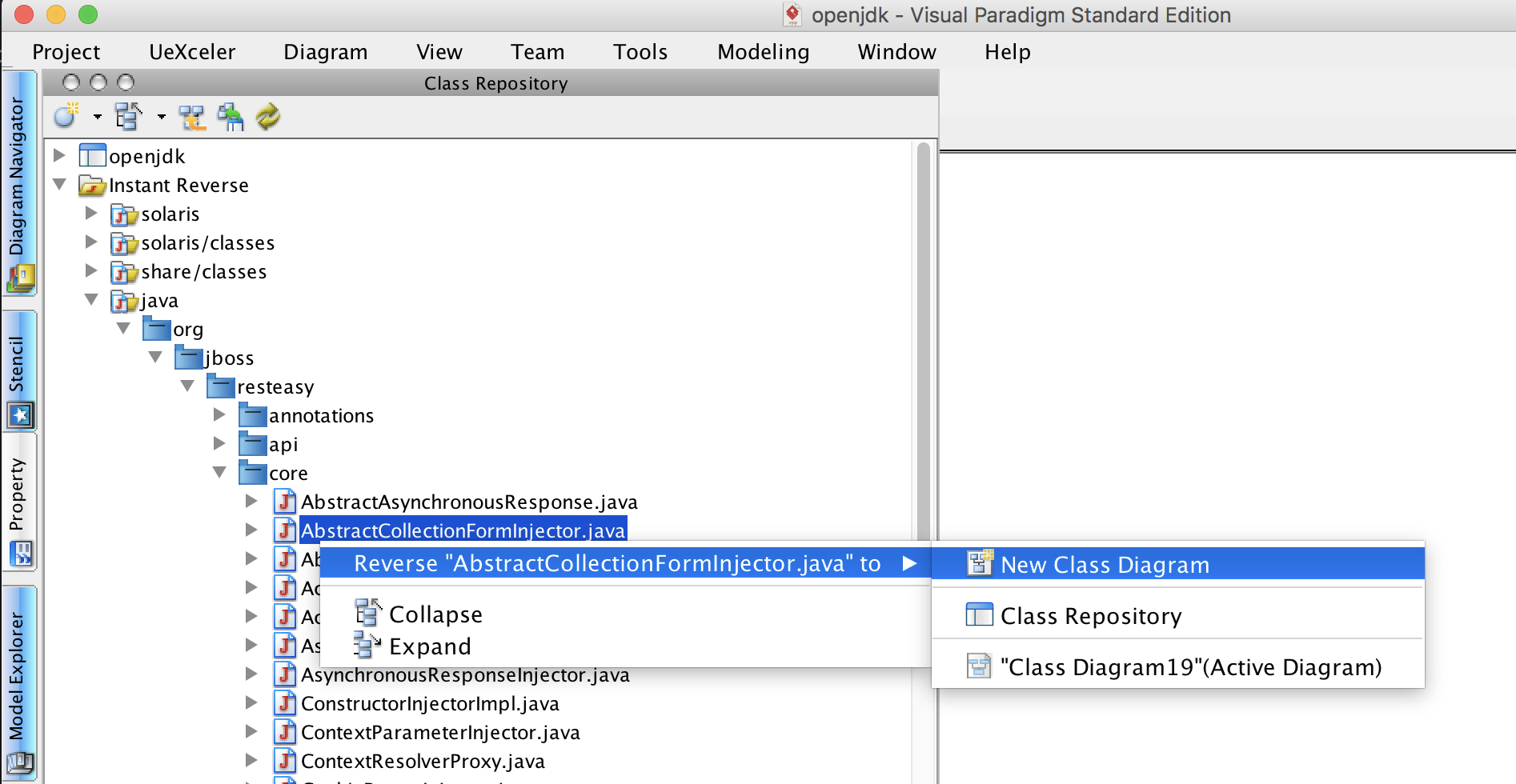
The generated class diagram is like this:
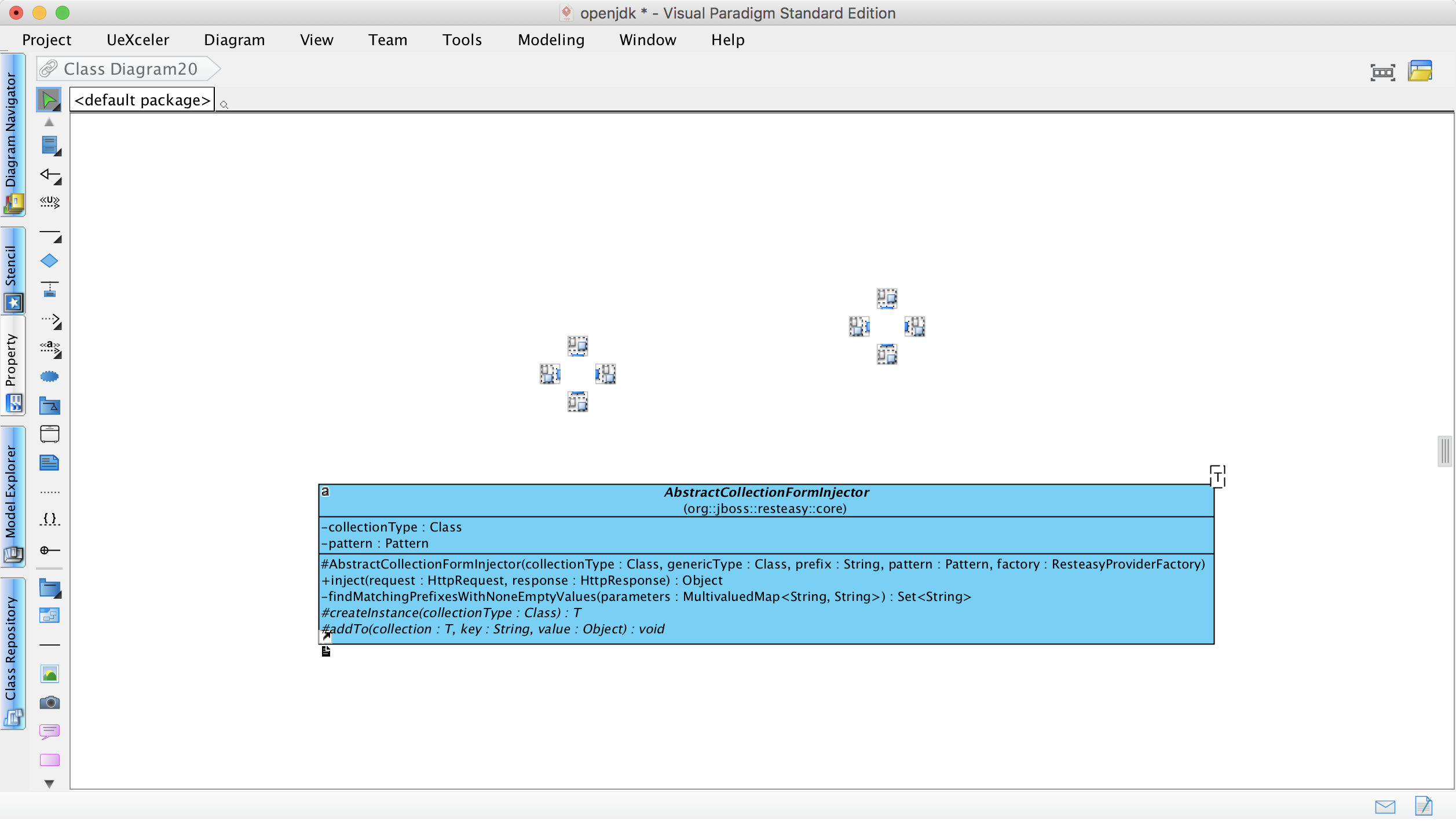
And I can also generate class diagram for multiple classes to analyze their relationships:
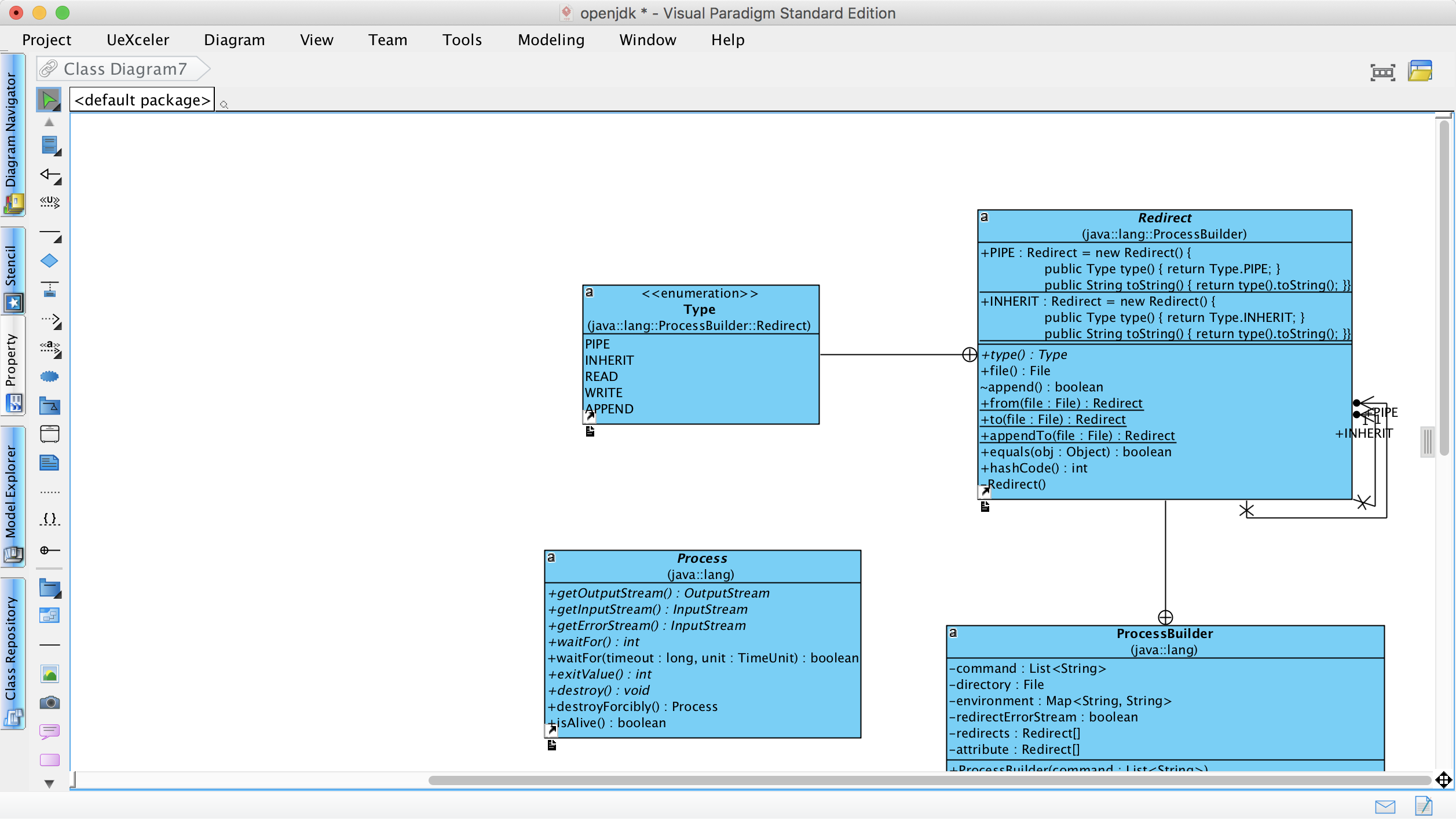
VP can also generate UML Sequence Diagram directly from class methods:
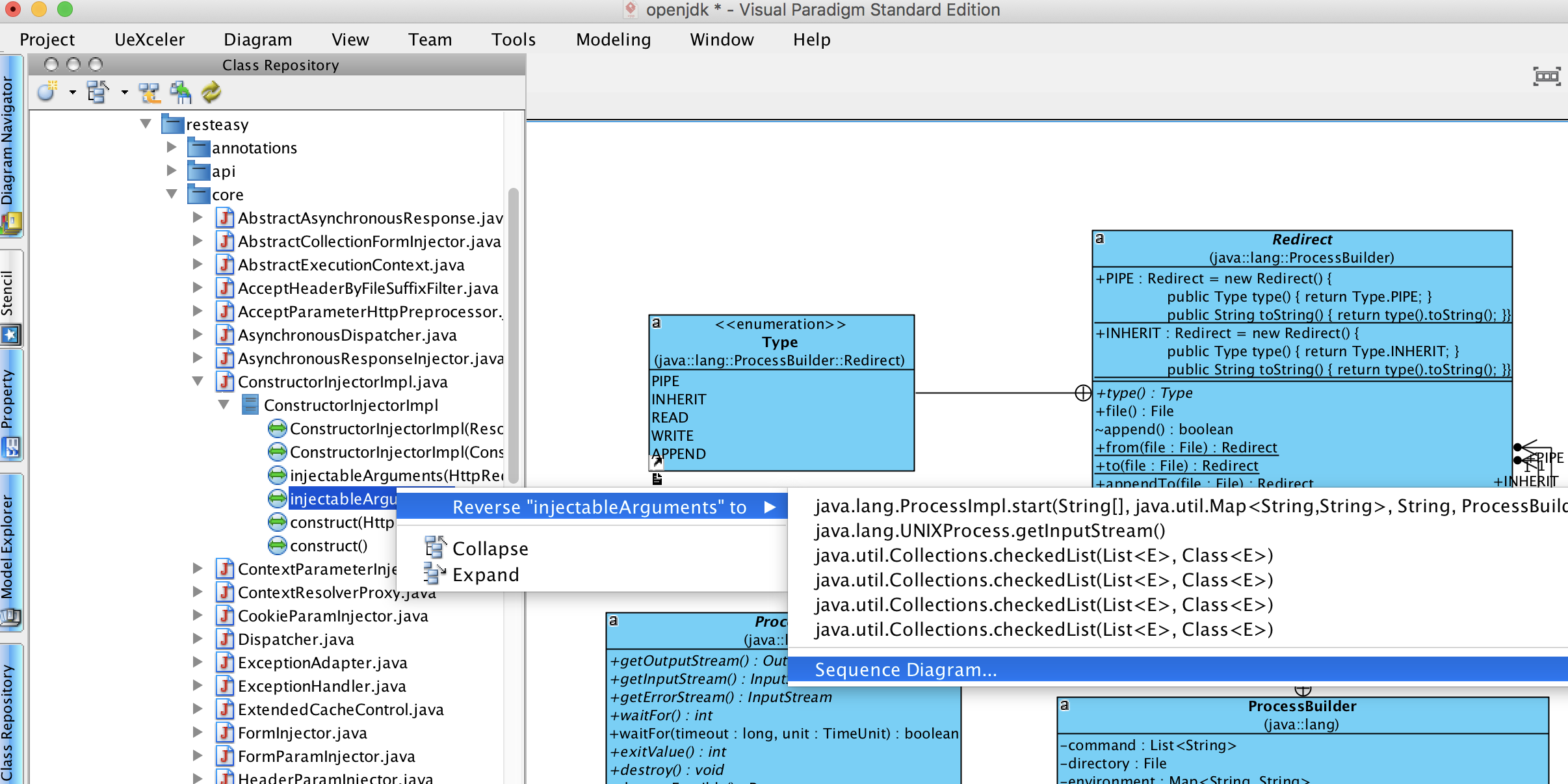
Here is the generated sequence diagram that can be helpful to analyze the program logic:
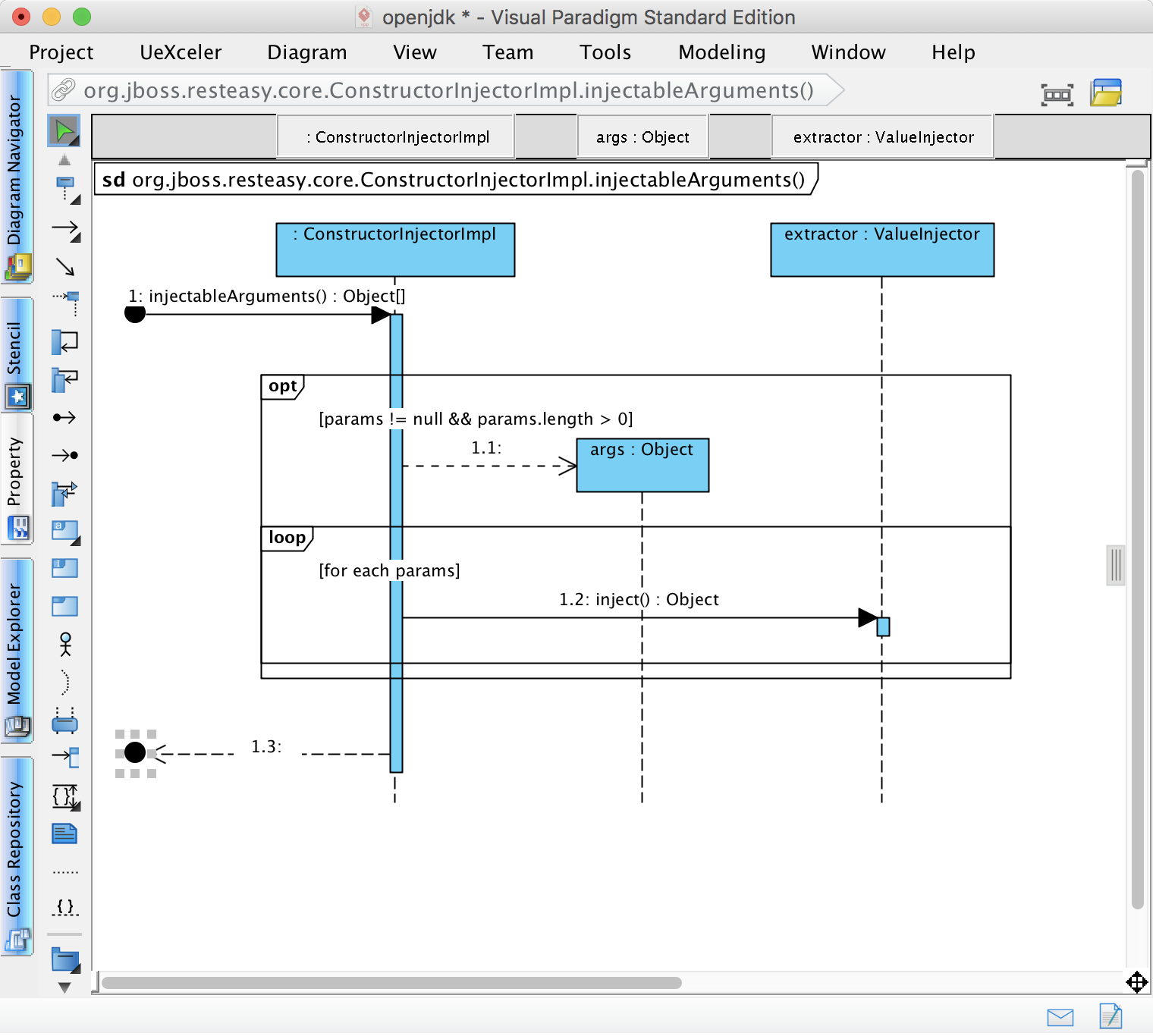
In addition, the diagram can be exported as different formats for future usages:
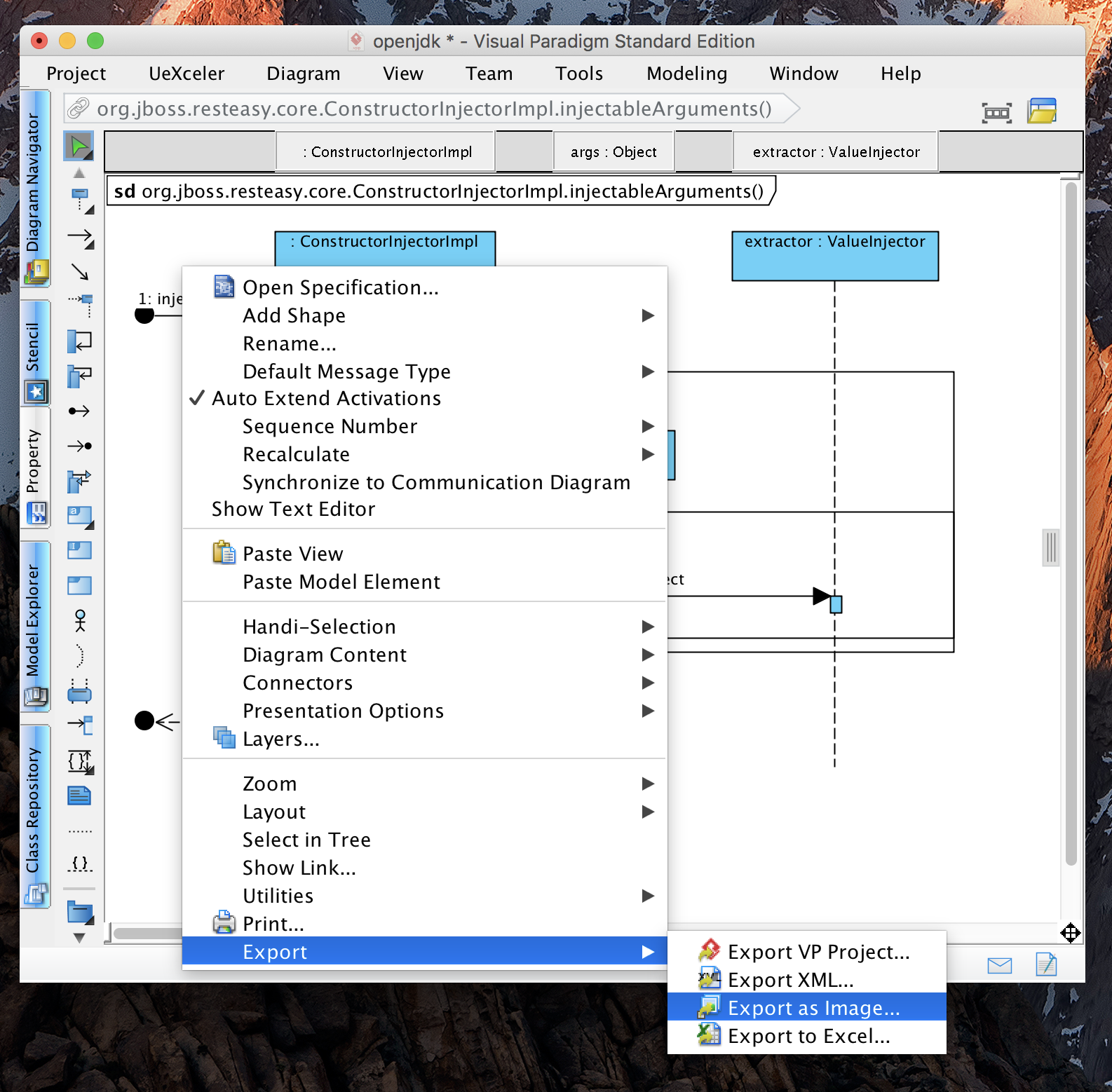
Till now, I have shown you the basic usages of Visual Paradigm from a programmer’s perspecitve. For project managers and designers, I believe they can dig out more values from the tool.